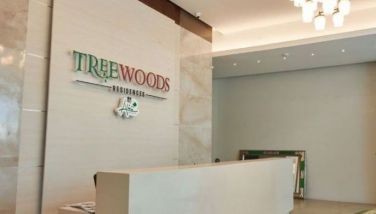Nestor Archival: From illness to business
CEBU, Philippines — While the health-conscious market in Cebu continues to expand, changing the mindset of consumers on living a healthy lifestyle remains a challenge among wellness enterprises.
How to sell?
This is often one of the challenges faced by health-oriented businesses in capturing a market that's used to the fast-food lifestyle.
For green living advocate and businessman Nestor Archival, however, promoting green eating in today's fast-paced world is an advocacy that's gradually gaining the interest of those treading the healthy path.
Archival, a former Cebu City councilor, together with his businessman-friend Jonathan Gesalem, founded Toniq Juice Bar, a health hub carrying naturally-crafted products, to counter unhealthy lifestyle of Most consumers nowadays.
Birth of Toniq
It is an enterprise close to Archival’s heart — and for sentimental reasons at that.
Back in 2009, then 51-year-old Archival suffered a stroke.
He also had hypertension, high cholesterol, and diabetes.
To survive, he was forced to take his medications.
“I was told to stick to the prescriptions,” he recalled in an interview with The FREEMAN. But that’s where the problem lies because “I wasn't used to taking all those medicines.”
Now 60, Archival believes that while medicines cure the symptoms, they don't necessarily stop “the root of the evil.”
For a couple of months, he went to the US and there, he learned more about alternative medicine, particularly plant-based diet.
He was introduced to juicing, a healthy practice which eventually cut his pharmaceutical consumption.
A day after Archival came back to Cebu, Gesalem visited him at his eco-friendly house in Barangay Talamban, Cebu City.
Coincidentally, Gesalem’s family friends, two Canadian nutritionists, were at that time also promoting sustainable living.
From those unexpected conversations sprang the idea that eventually led to the birth of Toniq Juice Bar. And the rest, as they say, was history.
Demand rising
In the Philippines, more and more people are making the shift to healthy living.
A 2018 report by Euromonitor International showed that the country’s health and wellness continued to benefit from the rising health consciousness of consumers and favorable economic performance. This resulted in a positive growth of the sector in 2017.
The report further revealed that consumers tended to gravitate towards products that they think are delicious and healthy, which in turn also influenced new product introductions.
In the same report, it was found out that while health and wellness has been broadening given the rise in consumer health awareness, supermarkets remain the most important distribution channel for the industry.
As consumers who gain more affluence gain more familiarity with product ingredients, they are likely to take more time reading nutrition labels, it said further.
What is encouraging for players in the sector is that this growth is seen to continue at least over the next several years, buoyed by the government’s campaign against diabetes and obesity through the imposition of additional taxes on salty food and sugary beverages, measures still awaiting approval in Congress.
Seeking to capitalize on such growing popularity of wellness products, Archival and his friend build out Toniq, an amalgamation of the words “tonic,” which refers to giving a feeling of vigor or well-being, and the Chinese term “qi” (“chi”), which connotes vital energy.
Archival thought there was a need to bring healthy alternatives into the market.
“Plant-based diet is really good for the body. Eating good food helps a lot. It worked for me,” the green advocate said.
And so with the help of a Canadian couple, he created the concoction of healthy products, particularly juices and smoothies.
Opened in 2015, Toniq’s first store is in SM City Cebu. Later, it also opened another one in Ayala Center Cebu.
Toniq's goal is to bring to life foods such as fruits and vegetables – raw goods that the body needs to cleanse its system. It also seeks to introduce a lifestyle that does not tolerate preservatives, artificial coloring, and processed sugars.
The company is now entertaining the possibility of opening the business to prospective franchisers to expand to other areas outside Cebu.
Along with that, it will also partner with call center companies here to boost its distribution network while seeking to introduce healthy living among business process outsourcing (BPO) workers.
Cebu, touted as the most important market outside Metro Manila, has been seeing a growing awareness in health and wellness, as evidenced by the strong demand for healthy drink products, according to Robert Go, president of the Philippine Retail Association (PRA-Cebu).
Go noted a consistent increase in health drink demand, especially in the metropolitan areas. He owns a chain of supermarkets around the country, the Prince Hypermart.
According to him, consumers now prefer to buy flavored drinks with healthy benefits, than quenching thirst with drinks that do not promote healthy living.
Euromonitor International said that organic packaged food and drinks were valued at USD37 billion at a global level.
Although the shift of consumers’ preference is also influenced by the rising cost of sugary products, such as soft drinks and juices, Go said the market now is discerning across social classes.
This means, that regardless of social status, consumers now are conscious of the health benefit of flavored drinks. High sugar content drinks are slowing down in terms of sales.
Archival himself sees the rising trend.
But there is, he said, more work to be done for the sector to property take off.
How to convince the non-committed? Archival said it’s all about going back to the basics – reminding people of the value of health; what they spend to eat, drink or consume is a form of investment.
That’s exactly what he did. Ang now he feels great. (FREEMAN)
- Latest





















